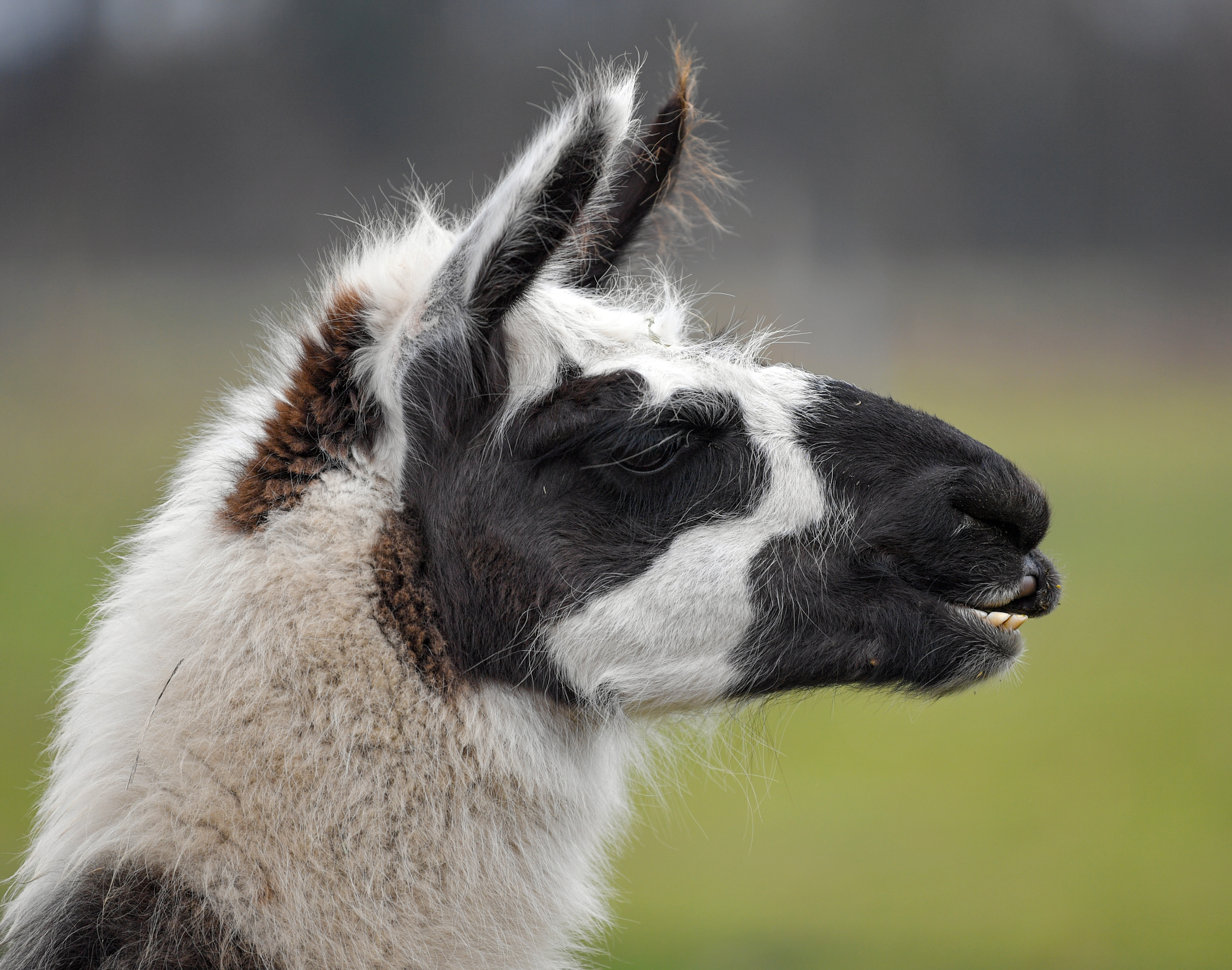How Many Llamas Did Softbank Spend on WeWork? An Investigation

Credit to Author: Jason Koebler| Date: Thu, 19 Dec 2019 19:27:22 +0000
Raising llamas can be a lucrative and rewarding investment. Llama wool sells for up to $6 per pound, and llama farms and petting zoos are fun for the whole family. Llamaseeker.com notes that “living with llamas will change your lifestyle for the better, and your life will be more enriched through this experience.” Perhaps investment firm SoftBank should consider investing in llamas, a thriving and up-and-coming market.
In the last several years, SoftBank has invested $18.5 billion in coworking startup WeWork, which has seen its valuation go from very high to very low over the second half of 2019. Perhaps a safer and better investment would have been in llamas, which “can be profitable if it is done in a proper way,” llamaseeker.com explains.
I know what you’re probably thinking: The llama market is simply too saturated for newcomers. But the truth is that the “llama market is still young and most do not know about it,” and, because llamas are a more versatile animal than alpacas (you can eat them, for example), “there will always be several markets for selling llamas.”
But how many llamas should SoftBank have bought? And are there enough llamas on Earth for SoftBank to achieve the scale it’d want? According to Tripsavvy.com’s mostly unsourced “24 fun facts about llamas” article, there are roughly 7 million llamas and alpacas in South America. But llamas are also raised as domestic animals (on fun and lucrative llama farms) all over the world. The Washington Post noted in 2015 that “llamas are literally everywhere,” which is factually inaccurate because I cannot see one from my desk at VICE Media (except on llamaseeker.com.) The USDA calculated that there were 76,086 llamas in the United States in 2012. Unfortunately, this number fell to just 39,599 in 2017. Ultimately, I think it’s fair to say that there are between 0 and 7 million llamas on Earth. Let's go with that 7 million number.
Llamaseeker explains that llama prices vary wildly, but that they are much cheaper than alpacas: “While in the past high quality alpacas can cost $20,000 – $50,000 each, a high quality llama is a fraction of that price. The elite end of the llamas price range varies but a small percent of llamas can fall between $5000 – $20,000. Nice quality llamas are still found in the ~ $1500 – $5000 range as well.”
Let’s assume that SoftBank wants to buy the world’s best llamas, those that fall into the top 1 percent of all llamas. That would mean there are roughly 70,000 elite llamas on Earth, which would cost something like $15,000 each. So for a mere $1,050,000,000, SoftBank could buy every elite llama on Earth. That, of course, still leaves 6.93 million non-elite llamas left. Let’s just assume that the average price of these llamas is $5,000. You’re still getting a lot of high quality llamas for that price! Anyway, that means that the price to buy all the other llamas on Earth would be $34,650,000,000.
This brings the grand total price of llamas on Earth to roughly $35,700,000,000. With SoftBank’s $18,500,000,000 investment in WeWork, it could have purchased slightly more than half of Earth’s llamas, including every blue chip, investment-grade llama on the planet. If one llama emoji (🦙) represents 1,000 llamas, then this is how many llamas SoftBank could have purchased:
🦙🦙🦙🦙🦙🦙🦙🦙🦙🦙🦙🦙🦙🦙🦙🦙🦙🦙🦙🦙🦙🦙🦙🦙🦙🦙🦙🦙🦙🦙🦙🦙🦙🦙🦙🦙🦙🦙🦙🦙🦙🦙🦙🦙🦙🦙🦙🦙🦙🦙🦙🦙🦙🦙🦙🦙🦙🦙🦙🦙🦙🦙🦙🦙🦙🦙🦙🦙🦙🦙🦙🦙🦙🦙🦙🦙🦙🦙🦙🦙🦙🦙🦙🦙🦙🦙🦙🦙🦙🦙🦙🦙🦙🦙🦙🦙🦙🦙🦙🦙🦙🦙🦙🦙🦙🦙🦙🦙🦙🦙🦙🦙🦙🦙🦙🦙🦙🦙🦙🦙🦙🦙🦙🦙🦙🦙🦙🦙🦙🦙🦙🦙🦙🦙🦙🦙🦙🦙🦙🦙🦙🦙🦙🦙🦙🦙🦙🦙🦙🦙🦙🦙🦙🦙🦙🦙🦙🦙🦙🦙🦙🦙🦙🦙🦙🦙🦙🦙🦙🦙🦙🦙🦙🦙🦙🦙🦙🦙🦙🦙🦙🦙🦙🦙🦙🦙🦙🦙🦙🦙🦙🦙🦙🦙🦙🦙🦙🦙🦙🦙🦙🦙🦙🦙🦙🦙🦙🦙🦙🦙🦙🦙🦙🦙🦙🦙🦙🦙🦙🦙🦙🦙🦙🦙🦙🦙🦙🦙🦙🦙🦙🦙🦙🦙🦙🦙🦙🦙🦙🦙🦙🦙🦙🦙🦙🦙🦙🦙🦙🦙🦙🦙🦙🦙🦙🦙🦙🦙🦙🦙🦙🦙🦙🦙🦙🦙🦙🦙🦙🦙🦙🦙🦙🦙🦙🦙🦙🦙🦙🦙🦙🦙🦙🦙🦙🦙🦙🦙🦙🦙🦙🦙🦙🦙🦙🦙🦙🦙🦙🦙🦙🦙🦙🦙🦙🦙🦙🦙🦙🦙🦙🦙🦙🦙🦙🦙🦙🦙🦙🦙🦙🦙🦙🦙🦙🦙🦙🦙🦙🦙🦙🦙🦙🦙🦙🦙🦙🦙🦙🦙🦙🦙🦙🦙🦙🦙🦙🦙🦙🦙🦙🦙🦙🦙🦙🦙🦙🦙🦙🦙🦙🦙🦙🦙🦙🦙🦙🦙🦙🦙🦙🦙🦙🦙🦙🦙🦙🦙🦙🦙🦙🦙🦙🦙🦙🦙🦙🦙🦙🦙🦙🦙🦙🦙🦙🦙🦙🦙🦙🦙🦙🦙🦙🦙🦙🦙🦙🦙🦙🦙🦙🦙🦙🦙🦙🦙🦙🦙🦙🦙🦙🦙🦙🦙🦙🦙🦙🦙🦙🦙🦙🦙🦙🦙🦙🦙🦙🦙🦙🦙🦙🦙🦙🦙🦙🦙🦙🦙🦙🦙🦙🦙🦙🦙🦙🦙🦙🦙🦙🦙🦙🦙🦙🦙🦙🦙🦙🦙🦙🦙🦙🦙🦙🦙🦙🦙🦙🦙🦙🦙🦙🦙🦙🦙🦙🦙🦙🦙🦙🦙🦙🦙🦙🦙🦙🦙🦙🦙🦙🦙🦙🦙🦙🦙🦙🦙🦙🦙🦙🦙🦙🦙🦙🦙🦙🦙🦙🦙🦙🦙🦙🦙🦙🦙🦙🦙🦙🦙🦙🦙🦙🦙🦙🦙🦙🦙🦙🦙🦙🦙🦙🦙🦙🦙🦙🦙🦙🦙🦙🦙🦙🦙🦙🦙🦙🦙🦙🦙🦙🦙🦙🦙🦙🦙🦙🦙🦙🦙🦙🦙🦙🦙🦙🦙🦙🦙🦙🦙🦙🦙🦙🦙🦙🦙🦙🦙🦙🦙🦙🦙🦙🦙🦙🦙🦙🦙🦙🦙🦙🦙🦙🦙🦙🦙🦙🦙🦙🦙🦙🦙🦙🦙🦙🦙🦙🦙🦙🦙🦙🦙🦙🦙🦙🦙🦙🦙🦙🦙🦙🦙🦙🦙🦙🦙🦙🦙🦙🦙🦙🦙🦙🦙🦙🦙🦙🦙🦙🦙🦙🦙🦙🦙🦙🦙🦙🦙🦙🦙🦙🦙🦙🦙🦙🦙🦙🦙🦙🦙🦙🦙🦙🦙🦙🦙🦙🦙🦙🦙🦙🦙🦙🦙🦙🦙🦙🦙🦙🦙🦙🦙🦙🦙🦙🦙🦙🦙🦙🦙🦙🦙🦙🦙🦙🦙🦙🦙🦙🦙🦙🦙🦙🦙🦙🦙🦙🦙🦙🦙🦙🦙🦙🦙🦙🦙🦙🦙🦙🦙🦙🦙🦙🦙🦙🦙🦙🦙🦙🦙🦙🦙🦙🦙🦙🦙🦙🦙🦙🦙🦙🦙🦙🦙🦙🦙🦙🦙🦙🦙🦙🦙🦙🦙🦙🦙🦙🦙🦙🦙🦙🦙🦙🦙🦙🦙🦙🦙🦙🦙🦙🦙🦙🦙🦙🦙🦙🦙🦙🦙🦙🦙🦙🦙🦙🦙🦙🦙🦙🦙🦙🦙🦙🦙🦙🦙🦙🦙🦙🦙🦙🦙🦙🦙🦙🦙🦙🦙🦙🦙🦙🦙🦙🦙🦙🦙🦙🦙🦙🦙🦙🦙🦙🦙🦙🦙🦙🦙🦙🦙🦙🦙🦙🦙🦙🦙🦙🦙🦙🦙🦙🦙🦙🦙🦙🦙🦙🦙🦙🦙🦙🦙🦙🦙🦙🦙🦙🦙🦙🦙🦙🦙🦙🦙🦙🦙🦙🦙🦙🦙🦙🦙🦙🦙🦙🦙🦙🦙🦙🦙🦙🦙🦙🦙🦙🦙🦙🦙🦙🦙🦙🦙🦙🦙🦙🦙🦙🦙🦙🦙🦙🦙🦙🦙🦙🦙🦙🦙🦙🦙🦙🦙🦙🦙🦙🦙🦙🦙🦙🦙🦙🦙🦙🦙🦙🦙🦙🦙🦙🦙🦙🦙🦙🦙🦙🦙🦙🦙🦙🦙🦙🦙🦙🦙🦙🦙🦙🦙🦙🦙🦙🦙🦙🦙🦙🦙🦙🦙🦙🦙🦙🦙🦙🦙🦙🦙🦙🦙🦙🦙🦙🦙🦙🦙🦙🦙🦙🦙🦙🦙🦙🦙🦙🦙🦙🦙🦙🦙🦙🦙🦙🦙🦙🦙🦙🦙🦙🦙🦙🦙🦙🦙🦙🦙🦙🦙🦙🦙🦙🦙🦙🦙🦙🦙🦙🦙🦙🦙🦙🦙🦙🦙🦙🦙🦙🦙🦙🦙🦙🦙🦙🦙🦙🦙🦙🦙🦙🦙🦙🦙🦙🦙🦙🦙🦙🦙🦙🦙🦙🦙🦙🦙🦙🦙🦙🦙🦙🦙🦙🦙🦙🦙🦙🦙🦙🦙🦙🦙🦙🦙🦙🦙🦙🦙🦙🦙🦙🦙🦙🦙🦙🦙🦙🦙🦙🦙🦙🦙🦙🦙🦙🦙🦙🦙🦙🦙🦙🦙🦙🦙🦙🦙🦙🦙🦙🦙🦙🦙🦙🦙🦙🦙🦙🦙🦙🦙🦙🦙🦙🦙🦙🦙🦙🦙🦙🦙🦙🦙🦙🦙🦙🦙🦙🦙🦙🦙🦙🦙🦙🦙🦙🦙🦙🦙🦙🦙🦙🦙🦙🦙🦙🦙🦙🦙🦙🦙🦙🦙🦙🦙🦙🦙🦙🦙🦙🦙🦙🦙🦙🦙🦙🦙🦙🦙🦙🦙🦙🦙🦙🦙🦙🦙🦙🦙🦙🦙🦙🦙🦙🦙🦙🦙🦙🦙🦙🦙🦙🦙🦙🦙🦙🦙🦙🦙🦙🦙🦙🦙🦙🦙🦙🦙🦙🦙🦙🦙🦙🦙🦙🦙🦙🦙🦙🦙🦙🦙🦙🦙🦙🦙🦙🦙🦙🦙🦙🦙🦙🦙🦙🦙🦙🦙🦙🦙🦙🦙🦙🦙🦙🦙🦙🦙🦙🦙🦙🦙🦙🦙🦙🦙🦙🦙🦙🦙🦙🦙🦙🦙🦙🦙🦙🦙🦙🦙🦙🦙🦙🦙🦙🦙🦙🦙🦙🦙🦙🦙🦙🦙🦙🦙🦙🦙🦙🦙🦙🦙🦙🦙🦙🦙🦙🦙🦙🦙🦙🦙🦙🦙🦙🦙🦙🦙🦙🦙🦙🦙🦙🦙🦙🦙🦙🦙🦙🦙🦙🦙🦙🦙🦙🦙🦙🦙🦙🦙🦙🦙🦙🦙🦙🦙🦙🦙🦙🦙🦙🦙🦙🦙🦙🦙🦙🦙🦙🦙🦙🦙🦙🦙🦙🦙🦙🦙🦙🦙🦙🦙🦙🦙🦙🦙🦙🦙🦙🦙🦙🦙🦙🦙🦙🦙🦙🦙🦙🦙🦙🦙🦙🦙🦙🦙🦙🦙🦙🦙🦙🦙🦙🦙🦙🦙🦙🦙🦙🦙🦙🦙🦙🦙🦙🦙🦙🦙🦙🦙🦙🦙🦙🦙🦙🦙🦙🦙🦙🦙🦙🦙🦙🦙🦙🦙🦙🦙🦙🦙🦙🦙🦙🦙🦙🦙🦙🦙🦙🦙🦙🦙🦙🦙🦙🦙🦙🦙🦙🦙🦙🦙🦙🦙🦙🦙🦙🦙🦙🦙🦙🦙🦙🦙🦙🦙🦙🦙🦙🦙🦙🦙🦙🦙🦙🦙🦙🦙🦙🦙🦙🦙🦙🦙🦙🦙🦙🦙🦙🦙🦙🦙🦙🦙🦙🦙🦙🦙🦙🦙🦙🦙🦙🦙🦙🦙🦙🦙🦙🦙🦙🦙🦙🦙🦙🦙🦙🦙🦙🦙🦙🦙🦙🦙🦙🦙🦙🦙🦙🦙🦙🦙🦙🦙🦙🦙🦙🦙🦙🦙🦙🦙🦙🦙🦙🦙🦙🦙🦙🦙🦙🦙🦙🦙🦙🦙🦙🦙🦙🦙🦙🦙🦙🦙🦙🦙🦙🦙🦙🦙🦙🦙🦙🦙🦙🦙🦙🦙🦙🦙🦙🦙🦙🦙🦙🦙🦙🦙🦙🦙🦙🦙🦙🦙🦙🦙🦙🦙🦙🦙🦙🦙🦙🦙🦙🦙🦙🦙🦙🦙🦙🦙🦙🦙🦙🦙🦙🦙🦙🦙🦙🦙🦙🦙🦙🦙🦙🦙🦙🦙🦙🦙🦙🦙🦙🦙🦙🦙🦙🦙🦙🦙🦙🦙🦙🦙🦙🦙🦙🦙🦙🦙🦙🦙🦙🦙🦙🦙🦙🦙🦙🦙🦙🦙🦙🦙🦙🦙🦙🦙🦙🦙🦙🦙🦙🦙🦙🦙🦙🦙🦙🦙🦙🦙🦙🦙🦙🦙🦙🦙🦙🦙🦙🦙🦙🦙🦙🦙🦙🦙🦙🦙🦙🦙🦙🦙🦙🦙🦙🦙🦙🦙🦙🦙🦙🦙🦙🦙🦙🦙🦙🦙🦙🦙🦙🦙🦙🦙🦙🦙🦙🦙🦙🦙🦙🦙🦙🦙🦙🦙🦙🦙🦙🦙🦙🦙🦙🦙🦙🦙🦙🦙🦙🦙🦙🦙🦙🦙🦙🦙🦙🦙🦙🦙🦙🦙🦙🦙🦙🦙🦙🦙🦙🦙🦙🦙🦙🦙🦙🦙🦙🦙🦙🦙🦙🦙🦙🦙🦙🦙🦙🦙🦙🦙🦙🦙🦙🦙🦙🦙🦙🦙🦙🦙🦙🦙🦙🦙🦙🦙🦙🦙🦙🦙🦙🦙🦙🦙🦙🦙🦙🦙🦙🦙🦙🦙🦙🦙🦙🦙🦙🦙🦙🦙🦙🦙🦙🦙🦙🦙🦙🦙🦙🦙🦙🦙🦙🦙🦙🦙🦙🦙🦙🦙🦙🦙🦙🦙🦙🦙🦙🦙🦙🦙🦙🦙🦙🦙🦙🦙🦙🦙🦙🦙🦙🦙🦙🦙🦙🦙🦙🦙🦙🦙🦙🦙🦙🦙🦙🦙🦙🦙🦙🦙🦙🦙🦙🦙🦙🦙🦙🦙🦙🦙🦙🦙🦙🦙🦙🦙🦙🦙🦙🦙🦙🦙🦙🦙🦙🦙🦙🦙🦙🦙🦙🦙🦙🦙🦙🦙🦙🦙🦙🦙🦙🦙🦙🦙🦙🦙🦙🦙🦙🦙🦙🦙🦙🦙🦙🦙🦙🦙🦙🦙🦙🦙🦙🦙🦙🦙🦙🦙🦙🦙🦙🦙🦙🦙🦙🦙🦙🦙🦙🦙🦙🦙🦙🦙🦙🦙🦙🦙🦙🦙🦙🦙🦙🦙🦙🦙🦙🦙🦙🦙🦙🦙🦙🦙🦙🦙🦙🦙🦙🦙🦙🦙🦙🦙🦙🦙🦙🦙🦙🦙🦙🦙🦙🦙🦙🦙🦙🦙🦙🦙🦙🦙🦙🦙🦙🦙🦙🦙🦙🦙🦙🦙🦙🦙🦙🦙🦙🦙🦙🦙🦙🦙🦙🦙🦙🦙🦙🦙🦙🦙🦙🦙🦙🦙🦙🦙🦙🦙🦙🦙🦙🦙🦙🦙🦙🦙🦙🦙🦙🦙🦙🦙🦙🦙🦙🦙🦙🦙🦙🦙🦙🦙🦙🦙🦙🦙🦙🦙🦙🦙🦙🦙🦙🦙🦙🦙🦙🦙🦙🦙🦙🦙🦙🦙🦙🦙🦙🦙🦙🦙🦙🦙🦙🦙🦙🦙🦙🦙🦙🦙🦙🦙🦙🦙🦙🦙🦙🦙🦙🦙🦙🦙🦙🦙🦙🦙🦙🦙🦙🦙🦙🦙🦙🦙🦙🦙🦙🦙🦙🦙🦙🦙🦙🦙🦙🦙🦙🦙🦙🦙🦙🦙🦙🦙🦙🦙🦙🦙🦙🦙🦙🦙🦙🦙🦙🦙🦙🦙🦙🦙🦙🦙🦙🦙🦙🦙🦙🦙🦙🦙🦙🦙🦙🦙🦙🦙🦙🦙🦙🦙🦙🦙🦙🦙🦙🦙🦙🦙🦙🦙🦙🦙🦙🦙🦙🦙🦙🦙🦙🦙🦙🦙🦙🦙🦙🦙🦙🦙🦙🦙🦙🦙🦙🦙🦙🦙🦙🦙🦙🦙🦙🦙🦙🦙🦙🦙🦙🦙🦙🦙🦙🦙🦙🦙🦙🦙🦙🦙🦙🦙🦙🦙🦙🦙🦙🦙🦙🦙🦙🦙🦙🦙🦙🦙🦙🦙🦙🦙🦙🦙🦙🦙🦙🦙🦙🦙🦙🦙🦙🦙🦙🦙🦙🦙🦙🦙🦙🦙🦙🦙🦙🦙🦙🦙🦙🦙🦙🦙🦙🦙🦙🦙🦙🦙🦙🦙🦙🦙🦙🦙🦙🦙🦙🦙🦙🦙🦙🦙🦙🦙🦙🦙🦙🦙🦙🦙🦙🦙🦙🦙🦙🦙🦙🦙🦙🦙🦙🦙🦙🦙🦙🦙🦙🦙🦙🦙🦙🦙🦙🦙🦙🦙🦙🦙🦙🦙🦙🦙🦙🦙🦙🦙🦙🦙🦙🦙🦙🦙🦙🦙🦙🦙🦙🦙🦙🦙🦙🦙🦙🦙🦙🦙🦙🦙🦙🦙🦙🦙🦙🦙🦙🦙🦙🦙🦙🦙🦙🦙🦙🦙🦙🦙🦙🦙🦙🦙🦙🦙🦙🦙🦙🦙🦙🦙🦙🦙🦙🦙🦙🦙🦙🦙🦙🦙🦙🦙🦙🦙🦙🦙🦙🦙🦙🦙🦙🦙🦙🦙🦙🦙🦙🦙🦙🦙🦙🦙🦙🦙🦙🦙🦙🦙🦙🦙🦙🦙🦙🦙🦙🦙🦙🦙🦙🦙🦙🦙🦙🦙🦙🦙🦙🦙🦙🦙🦙🦙🦙🦙🦙🦙🦙🦙🦙🦙🦙🦙🦙🦙🦙🦙🦙🦙🦙🦙🦙🦙🦙🦙🦙🦙🦙🦙🦙🦙🦙🦙🦙🦙🦙🦙🦙🦙🦙🦙🦙🦙🦙🦙🦙🦙🦙🦙🦙🦙🦙🦙🦙🦙🦙🦙🦙🦙🦙🦙🦙🦙🦙🦙🦙🦙🦙🦙🦙🦙🦙🦙🦙🦙🦙🦙🦙🦙🦙🦙🦙🦙🦙🦙🦙🦙🦙🦙🦙🦙🦙🦙🦙🦙🦙🦙🦙🦙🦙🦙🦙🦙🦙🦙🦙🦙🦙🦙🦙🦙🦙🦙🦙🦙🦙🦙🦙🦙🦙🦙🦙🦙🦙🦙🦙🦙🦙🦙🦙🦙🦙🦙🦙🦙🦙🦙🦙🦙🦙🦙🦙🦙🦙🦙🦙🦙🦙🦙🦙🦙🦙🦙🦙🦙🦙🦙🦙🦙🦙🦙🦙🦙🦙🦙🦙🦙🦙🦙🦙🦙🦙🦙🦙🦙🦙🦙🦙🦙🦙🦙🦙🦙🦙🦙🦙🦙🦙🦙🦙🦙🦙🦙🦙🦙🦙🦙🦙🦙🦙🦙🦙🦙🦙🦙🦙🦙🦙🦙🦙🦙🦙🦙🦙🦙🦙🦙🦙🦙🦙🦙🦙🦙🦙🦙🦙🦙🦙🦙🦙🦙🦙🦙🦙🦙🦙🦙🦙🦙🦙🦙🦙🦙🦙🦙🦙🦙🦙🦙🦙🦙🦙🦙🦙🦙🦙🦙🦙🦙🦙🦙🦙🦙🦙🦙🦙🦙🦙🦙🦙🦙🦙🦙🦙🦙🦙🦙🦙🦙🦙🦙🦙🦙🦙🦙🦙🦙🦙🦙🦙🦙🦙🦙🦙🦙🦙🦙🦙🦙🦙🦙🦙🦙🦙🦙🦙🦙🦙🦙🦙🦙🦙🦙🦙🦙🦙🦙🦙🦙🦙🦙🦙🦙🦙🦙🦙🦙🦙🦙🦙🦙🦙🦙🦙🦙🦙🦙🦙🦙🦙🦙🦙🦙🦙🦙🦙🦙🦙🦙🦙🦙🦙🦙🦙🦙🦙🦙🦙🦙🦙🦙🦙🦙🦙🦙🦙🦙🦙🦙🦙🦙🦙🦙🦙🦙🦙🦙🦙🦙🦙🦙🦙🦙🦙🦙🦙🦙🦙🦙🦙🦙🦙🦙🦙🦙🦙🦙🦙🦙🦙🦙🦙🦙🦙🦙🦙🦙🦙🦙🦙🦙🦙🦙🦙🦙🦙🦙🦙🦙🦙🦙🦙🦙🦙🦙🦙🦙🦙🦙🦙🦙🦙🦙🦙🦙🦙🦙🦙🦙🦙🦙🦙🦙🦙🦙🦙🦙🦙🦙🦙🦙🦙🦙🦙🦙🦙🦙🦙🦙🦙🦙🦙🦙🦙🦙🦙🦙🦙🦙🦙🦙🦙🦙🦙🦙🦙🦙🦙🦙🦙🦙🦙🦙🦙🦙🦙🦙🦙🦙🦙🦙🦙🦙🦙🦙🦙🦙🦙🦙🦙🦙🦙🦙🦙🦙🦙🦙🦙🦙🦙🦙🦙🦙🦙🦙🦙🦙🦙🦙🦙🦙🦙🦙🦙🦙🦙🦙🦙🦙🦙🦙🦙🦙🦙🦙🦙🦙🦙🦙🦙🦙🦙🦙🦙🦙🦙🦙🦙🦙🦙🦙🦙🦙🦙🦙🦙🦙🦙🦙🦙🦙🦙🦙🦙🦙🦙🦙🦙🦙🦙🦙🦙🦙🦙🦙🦙🦙🦙🦙🦙🦙🦙🦙🦙🦙🦙🦙🦙🦙🦙🦙🦙🦙🦙🦙🦙🦙🦙🦙🦙🦙🦙🦙🦙🦙🦙🦙🦙🦙🦙🦙🦙🦙🦙🦙🦙🦙🦙🦙🦙🦙🦙🦙🦙🦙🦙🦙🦙🦙🦙🦙🦙🦙🦙🦙🦙🦙🦙🦙🦙🦙🦙🦙🦙🦙🦙🦙🦙🦙🦙🦙🦙🦙🦙🦙🦙🦙🦙🦙🦙🦙🦙🦙🦙🦙🦙🦙🦙🦙🦙🦙🦙🦙🦙🦙🦙🦙🦙🦙🦙🦙🦙🦙🦙🦙🦙🦙🦙🦙🦙🦙🦙🦙🦙🦙🦙🦙🦙🦙🦙🦙🦙🦙🦙🦙🦙🦙🦙🦙🦙🦙🦙🦙🦙🦙🦙🦙🦙🦙🦙🦙🦙🦙🦙🦙🦙🦙🦙🦙🦙🦙🦙🦙🦙🦙🦙🦙🦙🦙🦙🦙🦙🦙🦙🦙🦙🦙🦙🦙🦙🦙🦙🦙🦙🦙🦙🦙🦙🦙🦙🦙🦙🦙🦙🦙🦙🦙🦙🦙🦙🦙🦙🦙🦙🦙🦙🦙🦙🦙🦙🦙🦙🦙🦙🦙🦙🦙🦙🦙🦙🦙🦙🦙🦙🦙🦙🦙🦙🦙🦙🦙🦙🦙🦙🦙🦙🦙🦙🦙🦙🦙🦙🦙🦙🦙🦙🦙🦙🦙🦙🦙🦙🦙🦙🦙🦙🦙🦙🦙🦙🦙🦙🦙🦙🦙🦙🦙🦙🦙🦙🦙🦙🦙🦙🦙🦙🦙🦙🦙🦙🦙🦙🦙🦙🦙🦙🦙🦙🦙🦙🦙🦙🦙🦙🦙🦙🦙🦙🦙🦙🦙🦙🦙🦙🦙🦙🦙🦙🦙🦙🦙🦙🦙🦙🦙🦙🦙🦙🦙🦙🦙🦙🦙🦙🦙🦙🦙🦙🦙🦙🦙🦙🦙🦙🦙🦙🦙🦙🦙🦙🦙🦙🦙🦙🦙🦙🦙🦙🦙🦙🦙🦙🦙🦙🦙🦙🦙🦙🦙🦙🦙🦙🦙🦙🦙🦙🦙🦙🦙🦙🦙🦙🦙🦙🦙🦙🦙🦙🦙🦙🦙🦙🦙🦙🦙🦙🦙🦙🦙🦙🦙🦙🦙🦙🦙🦙🦙🦙🦙🦙🦙🦙🦙🦙🦙🦙🦙🦙🦙🦙🦙🦙🦙🦙🦙🦙🦙🦙🦙🦙🦙🦙🦙🦙🦙🦙🦙🦙🦙🦙🦙
By simply using 35 percent of its 100 billion vision fund, SoftBank could purchase every llama. Should it do this?
“Running a well established llama farm can be a rewarding experience where you are your own boss, and you can work at home, groom llamas for shows, and enjoy traveling … several times a year,” llamaseeker.com notes. Also, there are tax benefits to doing so: “If you set your farm up in the proper way and run it like a business, you will be able to deduct the costs of buying the llamas, advertising, shows, feed, etc., as business expenses and enjoy a tax break. Let Uncle Sam pay a portion for those llamas!”
That is pretty compelling. Even better, unlike WeWork, you can actually make money with llamas.
This article originally appeared on VICE US.